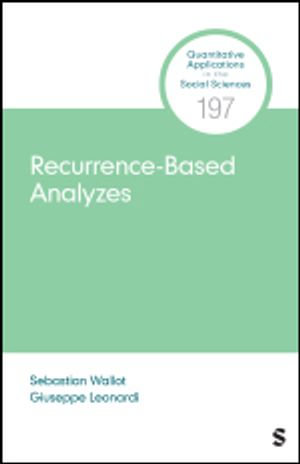
eTEXT
Recurrence-Based Analyses
By: Sebastian Wallot, Giuseppe Leonardi
eText | 24 December 2024 | Edition Number 1
At a Glance
eText
$68.20
or
Instant online reading in your Booktopia eTextbook Library *
Read online on
Desktop
Tablet
Mobile
Not downloadable to your eReader or an app
Why choose an eTextbook?
Instant Access *
Purchase and read your book immediately
Read Aloud
Listen and follow along as Bookshelf reads to you
Study Tools
Built-in study tools like highlights and more
* eTextbooks are not downloadable to your eReader or an app and can be accessed via web browsers only. You must be connected to the internet and have no technical issues with your device or browser that could prevent the eTextbook from operating.
ISBN: 9781071872352
ISBN-10: 1071872354
Series: Quantitative Applications in the Social Sciences
Published: 24th December 2024
Format: ePUB
Language: English
Publisher: SAGE Publications, Inc. (US)
Edition Number: 1























